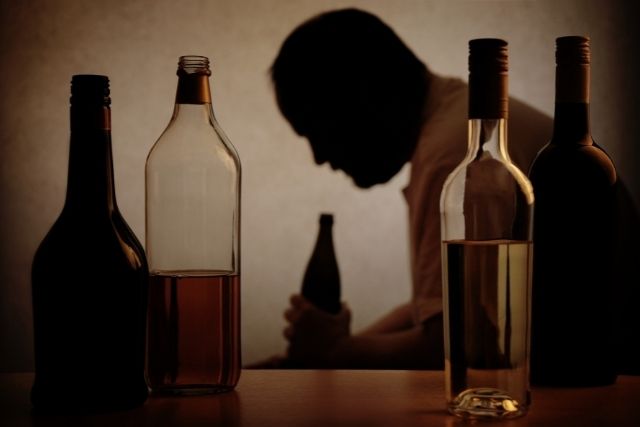Alcohol abuse is a societal problem that affects millions of people across the globe. In the US alone, it’s estimated that alcoholism affects approximately 15 million people.
While some believe that alcohol abuse is a drug problem, many believe that it may be more of a mental health issue. That’s why scientists have turned to psychedelic drugs as a potential treatment for alcohol addiction.
Not only are psychedelics relatively safe, but they’re proving to be a powerful tool in the fight against addictions. However, can psychedelic drugs actually be used to treat alcoholism, or is it just a rumor with no evidence?
Continue reading below to find out the relationship between psychedelic drugs and alcohol.
What is Alcoholism?
Before we jump into it, we need to talk about what alcoholism actually is. In medical terms, alcoholism is actually called alcohol use disorder (AUD).
The National Institute on Alcohol Abuse defines AUD as not being able to stop drinking despite consequences to health, relationships, or career. It’s estimated that about 95,000 people die in the USA each year due to alcohol.
There’s also an immeasurable amount of suffering from family members and friends of people in the grips of alcohol abuse.
The thing is, AUD is tough to control or can’t be controlled at all. The problem also gets worse over time because alcoholism is a negative feedback loop.
That means a lot of drinking can lead to changes in the brain that causes people to drink more or start again after they’ve stopped.
LSD and Alcoholism
Although the concept of using psychedelics on addiction seems new, it actually goes back decades. After the discovery of psychedelics, they were used in studies mostly by psychiatric researchers through the 1950s and 1960s.
Two of these researchers, named Humphry Osmond and Abram Hoffer, got the idea to use LSD to try and treat alcoholism.
The History of LSD and Alcoholism
Humphry Osmond and Abram Hoffer were two psychiatrists who were colleagues at a mental hospital in Saskatchewan, Canada. The hospital was in Weyburn, and there they put together a research lab for psychedelics.
Hoffer and Osmond thought up the idea to use LSD for people suffering from alcoholism in 1953. In the first experiment, Osmond gave 200 micrograms of LSD to two patients, one male, and one female.
The male patient stopped drinking, and the female continued but then stopped sometime later. The results stunned the researchers, and they decided to continue experimenting.
Over the next decade, they gave 700 chronic alcohol users LSD, with great results. For example, one of the first clinical trials in 1955 had great results and provided the first modern framework.
Twenty-four alcoholic patients were offered to stay at a hospital for two to four weeks. There they could discuss their drinking habits and what to expect from the psychedelic experience.
At the end of their stay, they were given a dose of LSD and spent the time in the presence of a psychiatrist and doctor. Afterward, researchers followed up with the patients for up to 3 years and found that at least half of the patients had quit drinking.
Although this study and many others proved LSD’s effectiveness, sadly, the prohibition put an end to the research shortly. In 1968, the USA banned LSD, and the United Nations treaty in 1971 saw the banning of psychedelics in most countries.
After prohibition, only a few more studies were performed before psychedelic use became restricted.
LSD and Alcoholism in the Modern Era
Unfortunately, there have been no new studies on alcoholism and LSD in the 21st century. Likely, that’s because the effort of performing a legal study is complex and restrictive, thanks to prohibitive laws from decades past.
The only new research to come out is a meta-review and an anecdotal study.
In the meta-review, performed in 2012, researchers looked only at well-organized studies from the 1960s and 1970s. What they found was that just one LSD trip could help people who abuse alcohol.
Not only that, but the treatment was effective 59% of the time, which is about the same as one of the first extensive studies performed in the 1950s.
The anecdotal study was performed as an online survey and wasn’t a professional trial. However, the researchers asked 343 anonymous people online about their experience with psychedelics and alcoholism.
According to the results, 83% of the participants reported that their drinking had completely stopped or improved after taking psychedelics.
Psilocybin and Alcoholism
More than any other psychedelic, psilocybin is being used the most in the modern world. From anxiety and depression to addiction treatment, psilocybin is getting the green light on many clinical trials.
That’s possibly due to psilocybin’s safety, short duration, and how safe the drug is. That’s why researchers are now looking at psilocybin’s effect on alcohol dependence.
In 2015, a small study was performed to see psilocybin’s effect on alcoholism. After one or two doses of psilocybin, all of the participants had decreased or stopped using alcohol.
In 2021, a phase II trial is ongoing to see the effects of psilocybin on alcohol dependence in a larger and more controlled study. The results of the trial aren’t out yet but are expected later this year.
How Do Psychedelics Help People Suffering From Alcoholism?
Since the first trials of LSD and alcohol abuse, the researchers have tried to find out how psychedelics could have such a profound effect. Osmond and Hoffer believed that patients’ subjective experience during their psychedelic trip helped the patients reflect, become self-aware, and stop using alcohol.
It was often a spiritual experience that led patients to realize that they needed to stop drinking.
Unfortunately, the scientific world, and even now, is only interested in objective evidence. Despite only needing one dose for lifelong change, science would turn its back on psychedelics in favor of addictive anti-depressant and anti-psychotic medications.
All the past and current research point to the conclusion that psychedelics do help people suffering from alcohol abuse. We can only hope that the future remains bright for psychedelics and that people suffering from AUD can finally get the treatment they deserve.





No Comments